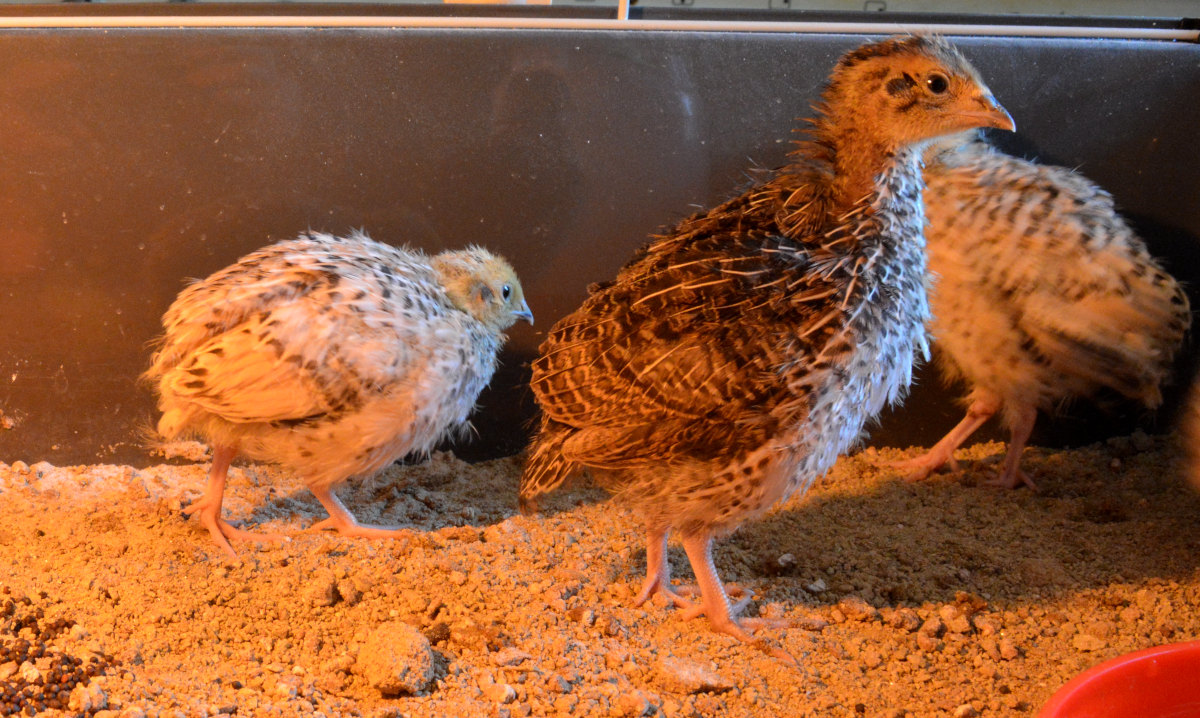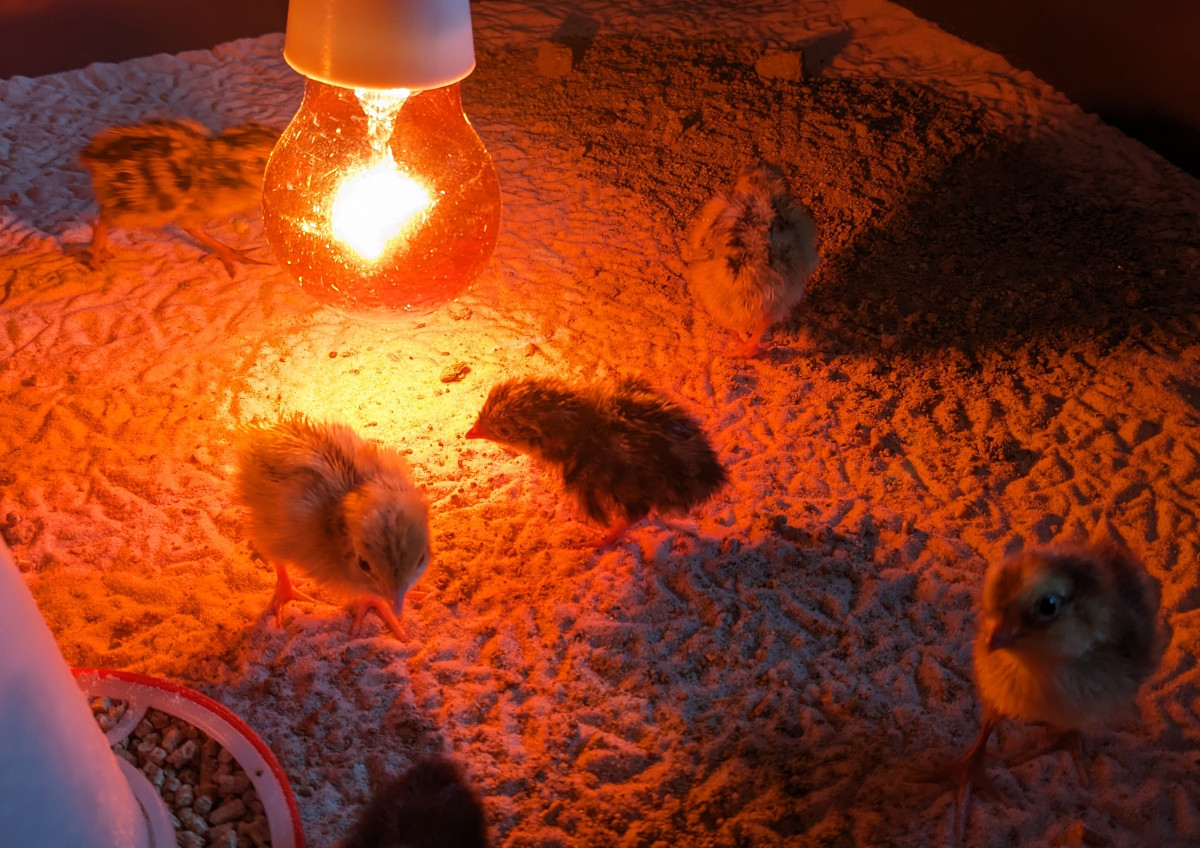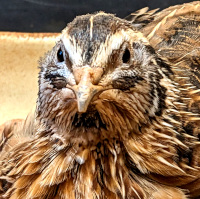Can quail be pets? And how to integrate them into the family home.

Beyond their delicious eggs, these agile ground birds offer a delightful mix of quirkiness, personality, and low-maintenance care.
But are quails the right feathered friends for you? And do they make good pets?
Table of Contents
Quail are social birds and thrive when kept in pairs or small groups with one male. However, avoid overcrowding, as this can lead to stress and aggression. Spend time observing and interacting with your quail to build trust.
Should you get quail as pets?
While quail are generally not as affectionate as some other pets, but with food treats, training and patience, they can become accustomed to gentle handling.
Quail are best enjoyed as observed companions rather than touchy pets.
Quail are diurnal, meaning they are awake during the day and sleep at night. They are active at the same time as their human keepers.
Below: Here is a young quail interacting with the keeper and being friendly.
Whether or not to choose quail depends on what you want as an individual from your pets.
Advantages of keeping Quail as pets:
- Unique and Entertaining Companions: Quails boast distinct personalities, playful antics, and fascinating social dynamics, offering a truly unique pet experience.
- Variety of Breeds: Different breeds have unique personalities and appearances, allowing you to choose the perfect fit for you. Some Quail are even kept for their song.
- Educational Experience: Observing and caring for quails can be a fun learning experience for both children and adults.
- Low-Maintenance: Compact size and simple dietary needs make them suitable for smaller spaces and busy lifestyles.
- Quiet Chirps: Unlike larger birds, their vocalisations are gentle and unlikely to disturb neighbours.
- Charming Personalities: Each breed exhibits unique quirks and behaviours, providing endless entertainment and heartwarming moments.
- Delicious Eggs (Bonus): While not the primary reason for keeping them as pets, quail eggs are a tasty and nutritious bonus for some owners.
Disadvantages of keeping Quail as pets:
- Delicate Nature: Smaller size and fragility require gentle handling and a calm environment to minimise stress.
- Startled Easily: Loud noises or sudden changes can frighten them, leading to escape attempts or self-injury.
- Flight Risk: Even clipped wings can't guarantee they won't escape, requiring a secure enclosure with a top.
- Not Legal Everywhere: Some regions have restrictions on keeping quails as pets, so research local regulations before acquiring them.
- Not Cuddly Pets: While they may enjoy gentle interaction, quails are not typically interested in cuddling or perching on shoulders.
- Lifespan: Their average lifespan is 3-5 years, so be prepared for a long-term commitment.
- Dirt and mess: Their dust-bathing enthusiasm can lead to dust and mess. The cages and coop will need to be cleaned regularly.
- Limited Interaction: Their skittish nature can make frequent handling or training challenging.
- Social Needs: They thrive in flocks, requiring at least one other quail for companionship.
- Not Ideal for Egg Production: Frequent egg collection can stress them, and their small egg size makes them less efficient for this purpose compared to chickens.
Ultimately, the decision of whether or not to keep quail as pets comes down to your lifestyle, living situation, and commitment to providing them with the proper care and environment. By carefully weighing the advantages and disadvantages, you can make an informed decision that suits both you and your potential feathered companions.
Low-maintenance charm:
Unlike their larger feathered cousins, quails require minimal space. A modest coop and well-enriched run provide ample opportunity for exploring and exercise.
Quail can not however, be allowed to run free as they have no homing instinct like chickens do.
Their simple diet of commercial feed, fresh greens, and grit makes upkeep hassle-free, ideal for busy lifestyles. Plus, their quiet chirps won't ruffle feathers with neighbours.
Choosing the right Quail species:
Each species has its own characteristics, such as size, egg production, and temperament.
Hatching your own is the best way to rear Quail if you want friendly birds that easily become tame and get used to having you in their lives.
Below: Baby quail hatch in 18 or so days, are fun to have around and grow quickly.

Consider your living space, the purpose of keeping quail (pet, eggs, or meat), and any local regulations before making your decision.
The ins and outs of Quail as pets:
While quails are generally social creatures, they can be easily startled and prefer calmer environments. Loud noises or unexpected changes can send them fluttering (literally!).
Keeping their coop in a quiet, draft-free area is crucial for a happy flock. Additionally, their playful nature can sometimes translate into dust-bath explosions or inadvertent escape attempts. Be prepared for a touch of feathered mischief!
A minimum of one square foot of space per bird is recommended and quail need to be kept contained, free range birds will escape in an instant. Provide a secure wire mesh on the sides and top of the enclosure to protect them from potential predators.
More than eggs, Quail can be a companion:
While quail eggs are a delicious bonus, consider quails primarily as companions. Their delicate size and potential stress from frequent egg collection make them less suitable for egg production compared to chickens.
Instead, focus on building a bond with your feathered friends. Their playful interactions and quirky antics offer a unique companionship unlike any other.
